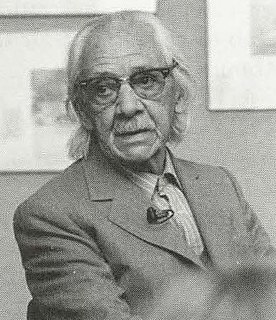A Quote by Stephen Jay Gould
In their recently aborted struggle to inject Genesis literalism into science classrooms, fundamentalist groups followed their usual opportunistic strategy of arguing two contradictory sides of a question when a supposed rhetorical advantage could be extracted from each.
Related Quotes
One could think of a person who seems to have two opposing and contradictory sides to his personality; but it turns out that in the end the two sides are complementary. The same happens with an artist's work: deep down, what appear as contradictory sides are merely different registers, different aspects of the reality that the artist inhabits
Some make light of decisions, arguing that all possible decisions will occur. In such a world, how could one be responsible for his actions? Others hold that each decision must be considered and committed to, that without commitment there is chaos. Such people are content to live in contradictory worlds, so long as they know the reason for each.
In writing a novel, the writer must be able to identify emotionally and intellectually with two or three or four contradicting perspectives and give each of them very a convincing voice. It's like playing tennis with yourself and you have to be on both sides of the yard. You have to be on both sides, or all sides if there are more than two sides.
Science merely amplifies the capabilities of human beings. Science gives us the ability to do ill and to do good more than we had, and to question science in this respect is like questioning whether people ought to have two hands or just one, because with two hands they could do more evil than they can with just one.
D.H. Lawrence, I think, defined the difference between writing an article and writing a novel very well. He said, in writing a novel, the writer must be able to identify emotionally and intellectually with two or three or four contradicting perspectives and give each of them very a convincing voice. It's like playing tennis with yourself and you have to be on both sides of the yard. You have to be on both sides, or all sides if there are more than two sides.
We know only a single science, the science of history. History can be contemplated from two sides, it can be divided into the history of nature and the history of mankind. However, the two sides are not to be divided off; as long as men exist the history of nature and the history of men are mutually conditioned.


































